- Home
- J. R. R. Tolkien
Smith of Wootton Major Page 3
Smith of Wootton Major Read online
Page 3
The smith turned away without another word and groped his way to the door. On the threshold he found that his sight had cleared again. It was evening and the Even-star was shining in a luminous sky close to the Moon. As he stood for a moment looking at their beauty, he felt a hand on his shoulder and turned.
"You gave me the star freely," said Alf. "If you still wish to know to which child it will go, I will tell you."
"I do indeed."
"It shall go to any one that you appoint."
The smith was taken aback and did not answer at once. "Well," he said hesitating, "I wonder what you may think of my choice. I believe you have little reason to love the name of Nokes, but, well, his little great-grandson, Nokes of Townsend's Tim, is coming to the Feast. Nokes of Townsend is quite different."
"I have observed that," said Alf. "He had a wise mother."
"Yes, my Nell's sister. But apart from the kinship I love little Tim. Though he's not an obvious choice."
Alf smiled. "Neither were you," he said. "But I agree. Indeed I had already chosen Tim."
"Then why did you ask me to choose?"
"The Queen wished me to do so. If you had chosen differently I should have given way."
The smith looked long at Alf. Then suddenly he bowed low. "I understand at last, sir," he said. "You have done us too much honour."
"I have been repaid," said Alf. "Go home now in peace!"
When the smith reached his own house on the western outskirts of the village he found his son by the door of the forge. He had just locked it, for the day's work was done, and now he stood looking up the white road by which his father used to return from his journeys. Hearing footsteps he turned in surprise to see him coming from the village, and he ran forward to meet him. He put his arms about him in loving welcome.
"I've been hoping for you since yesterday, Dad," he said. Then looking into his father's face he said anxiously: "How tired you look! You have walked far, maybe?"
"Very far indeed, my son. All the way from Daybreak to Evening."
They went into the house together, and it was dark except for the fire Bickering on the hearth. His son lit candles, and for a while they sat by the fire without speaking; for a great weariness and bereavement was on the smith. At last he looked round, as if coming to himself, and he said: "Why are we alone?"
His son looked hard at him. "Why? Mother's over at Minor, at Nan's. It's the little lad's second birthday. They hoped you would be there too."
"Ah yes. I ought to have been. I should have been, Ned, but I was delayed; and I have had matters to think of that put all else out of mind for a time. But I did not forget Tomling."
He put his hand in his breast and drew out a little wallet of soft leather. "I have brought him something. A trinket old Nokes maybe would call it—but it comes out of Faery, Ned." Out of the wallet he took a little thing of silver. It was like the smooth stem of a tiny lily from the top of which came three delicate Bowers, bending down like shapely bells. And bells they were, for when he shook them gently each Bower rang with a small clear note. At the sweet sound the candles flickered and then for a moment shone with a white light.
Ned's eyes were wide with wonder. "May I look at it, Dad?" he said. He took it with careful fingers and peered into the flowers. "The work is a marvel!" he said. "And, Dad, there is a scent in the bells: a scent that reminds me of, reminds me, well, of something I've forgotten."
"Yes, the scent comes for a little while after the bells have rung. But don't fear to handle it, Ned. It was made for a babe to play with. He can do it no harm, and he'll take none from it."
The smith put the gift back in the wallet and stowed it away. "I'll take it over to Wootton Minor myself tomorrow," he said. "Nan and her Tom, and Mother, will forgive me, maybe. As for Tomling, his time has not come yet for the counting of days . . . and of weeks, and of months, and of years."
"That's right. You go, Dad. I'd be glad to go with you; but it will be some time before I can get over to Minor. I couldn't have gone today, even if I hadn't waited here for you. There's a lot of work in hand, and more coming in."
"No, no, Smith's son! Make it a holiday! The name of grandfather hasn't weakened my arms yet a while. Let the work come! There'll be two pairs of hands to tackle it now, all working days. I shall not be going on journeys again, Ned: not on long ones, if you understand me."
"It's that way is it, Dad? I wondered what had become of the star. That's hard." He took his father's hand. "I'm grieved for you; but there's good in it too, for this house. Do you know, Master Smith, there is much you can teach me yet, if you have the time. And I do not mean only the working of iron."
They had supper together, and long after they had finished they still sat at the table, while the smith told his son of his last journey in Faery, and of other things that came to his mind—but about the choice of the next holder of the star he said nothing.
At last his son looked at him, and "Father," he said, "do you remember the day when you came back with the Flower? And I said that you looked like a giant by your shadow. The shadow was the truth. So it was the Queen herself that you danced with! Yet you have given up the star. I hope it may go to someone as worthy. The child should be grateful."
"The child won't know," said the smith. "That's the way with such gifts. Well, there it is. I have handed it on and come back to hammer and tongs."
It is a strange thing, but old Nokes, who had scoffed at his apprentice, had never been able to put out of his mind the disappearance of the star in the Cake, although that event had happened so many years ago. He had grown fat and lazy, and retired from his office when he was sixty (no great age in the village). He was now near the end of his eighties, and was of enormous bulk, for he still ate heavily and doted on sugar. Most of his days, when not at table, he spent in a big chair by the window of his cottage, or by the door if it was fine weather. He liked talking, since he still had many opinions to air; but lately his talk mostly turned to the one Great Cake that he had made (as he was now firmly convinced), for whenever he fell asleep it came into his dreams. Prentice sometimes stopped for a word or two. So the old cook still called him, and he expected himself to be called Master. That Prentice was careful to do; which was a point in his favour, though there were others that Nokes was more fond of.
One afternoon Nokes was nodding in his chair by the door after his dinner. He woke with a start to find Prentice standing by and looking down at him. "Hullo!" he said. "I'm glad to see you, for that cake's been on my mind again. I was thinking of it just now in fact. It was the best cake I ever made, and that's saying something. But perhaps you have forgotten it."
"No, Master. I remember it very well. But what is troubling you? It was a good cake, and it was enjoyed and praised."
"Of course. I made it. But that doesn't trouble me. It's the little trinket, the star. I cannot make up my mind what became of it. Of course it wouldn't melt. I only said that to stop the children from being frightened. I have wondered if one of them did not swallow it. But is that likely? You might swallow one of those little coins and not notice it, but not that star. It was small but it had sharp points."
"Yes, Master. But do you really know what the star was made of? Don't trouble your mind about it. Someone swallowed it, I assure you."
"Then who? Well, I've a long memory, and that day sticks in it somehow. I can recall all the children's names. Let me think. It must have been Miller's Molly! She was greedy and bolted her food. She's as fat as a sack now."
"Yes, there are some folk who get like that, Master. But Molly did not bolt her cake. She found two trinkets in her slice."
"Oh, did she? Well, it was Cooper's Harry then. A barrel of a boy with a big mouth like a frog's."
"I should have said, Master, that he was a nice boy with a large friendly grin. Anyway he was so careful that he took his slice to pieces before he ate it. He found nothing but cake."
"Then it must have been that little pale girl, Draper's Lily. She used to s
wallow pins as a baby and came to no harm."
"Not Lily, Master. She only ate the paste and the sugar, and gave the inside to the boy that sat next to her."
"Then I give up. Who was it? You seem to have been watching very closely. If you're not making it all up."
"It was the Smith's son, Master; and I think it was good for him."
"Go on!" laughed old Nokes. "I ought to have known you were having a game with me. Don't be ridiculous! Smith was a quiet slow boy then. He makes more noise now: a bit of a songster, I hear; but he's cautious. No risks for him. Chews twice before he swallows, and always did, if you take my meaning."
"I do, Master. Well, if you won't believe it was Smith, I can't help you. Perhaps it doesn't matter much now. Will it ease your mind if I tell you that the star is back in the box now? Here it is!"
Prentice was wearing a dark green cloak, which Nokes now noticed for the first time. From its folds he produced the black box and opened it under the old cook's nose. "There is the star, Master, down in the corner."
Old Nokes began coughing and sneezing, but at last he looked into the box. "So it is!" he said. "At least it looks like it."
"It is the same one. Master. I put it there myself a few days ago. It will go back in the Great Cake this winter."
"A-ha!" said Nokes, leering at Prentice; and then he laughed till he shook like a jelly. "I see, I see! Twenty-four children and twenty-four lucky bits, and the star was one extra. So you nipped it out before the baking and kept it for another time. You were always a tricky fellow: nimble one might say. And thrifty: wouldn't waste a bee's knee of butter. Ha, ha, ha! So that was the way of it. I might have guessed. Well, that's cleared up. Now I can have a nap in peace." He settled down in his chair. "Mind that prentice-man of yours plays you no tricks! The artful don't know all the arts, they say." He closed his eyes.
"Goodbye, Master!" said Prentice, shutting the box with such a snap that the cook opened his eyes again. "Nokes," he said, "your knowledge is so great that I have only twice ventured to tell you anything. I told you that the star came from Faery; and I have told you that it went to the smith. You laughed at me. Now at parting I will tell you one thing more. Don't laugh again! You are a vain old fraud, fat, idle and sly. I did most of your work. Without thanks you learned all that you could from me - except respect for Faery, and a little courtesy. You have not even enough to bid me good day."
"If it comes to courtesy," said Nokes, "I see none in calling your elders and betters by ill names. Take your Fairy and your nonsense somewhere else! Good day to you, if that's what you're waiting for. Now go along with you!" He flapped his hand mockingly. "If you've got one of your fairy friends hidden in the Kitchen, send him to me and I'll have a look at him. If he waves his little wand and makes me thin again, I'll think better of him," he laughed.
"Would you spare a few moments for the King of Faery?" the other answered. To Nokes's dismay he grew taller as he spoke. He threw back his cloak. He was dressed like a Master Cook at a Feast, but his white garments shimmered and glinted, and on his forehead was a great jewel like a radiant star. His face was young but stem.
"Old man," he said, "you are at least not my elder. As to my better: you have often sneered at me behind my back. Do you challenge me now openly?" He stepped forward, and Nokes shrank from him, trembling. He tried to shout for help but found that he could hardly whisper.
"No, sir!" he croaked. "Don't do me a harm! I'm only a poor old man."
The King's face softened. "Alas, yes! You speak the truth. Do not be afraid! Be at ease! But will you not expect the King of Faery to do something for you before he leaves you? I grant you your wish. Farewell! Now go to sleep!"
He wrapped his cloak about him again and went away towards the Hall; but before he was out of sight the old cook's goggling eyes had shut and he was snoring.
When the old cook woke again the sun was going down. He rubbed his eyes and shivered a little, for the autumn air was chilly. "Ugh! What a dream!" he said. "It must have been that pork at dinner."
From that day he became so afraid of having more bad dreams of that sort that he hardly dared eat anything for fear that it might upset him, and his meals became very short and plain. He soon became lean, and his clothes and his skin hung on him in folds and creases. The children called him old Rag-and-Bones. Then for a time he found that he could get about the village again and walk with no more help than a stick; and he lived many years longer than he would otherwise have done. Indeed it is said that he just made his century: the only memorable thing he ever achieved. But till his last year he could be heard saying to any that would listen to his tale: "Alarming, you might call it; but a silly dream, when you come to think of it. King o' Fairy! Why, he hadn't no wand. And if you stop eating you grow thinner. That's natural. Stands to reason. There ain't no magic in it."
The time for the Twenty-four Feast came round. Smith was there to sing songs and his wife to help with the children. Smith looked at them as they sang and danced, and he thought that they were more beautiful and lively than they had been in his boyhood—for a moment it crossed his mind to wonder what Alf might have been doing in his spare time. Any one of them seemed fit to find the star. But his eyes were mostly on Tim: a rather plump little boy, clumsy in the dances, but with a sweet voice in the singing. At table he sat silent, watching the sharpening of the knife and the cutting of the Cake. Suddenly, he piped up:
"Dear Mr. Cook, only cut me a small slice please. I've eaten so much already, I feel rather full."
"All right, Tim," said Alf. "I'll cut you a special slice. I think you'll find it go down easily."
Smith watched as Tim ate his cake slowly, but with evident pleasure; though when he found no trinket or coin in it he looked disappointed. But soon a light began to shine in his eyes, and he laughed and became merry, and sang softly to himself. Then he got up and began to dance all alone with an odd grace that he had never shown before. The children all laughed and clapped.
"All is well then," thought Smith. "So you are my heir. I wonder what strange places the star will lead you to? Poor old Nokes. Still I suppose he will never know what a shocking thing has happened in his family."
He never did. But one thing happened at that Feast that pleased him mightily. Before it was over the Master Cook took leave of the children and of all the others that were present.
"I will say goodbye now," he said. "In a day or two I shall be going away. Master Harper is quite ready to take over. He is a very good cook, and as you know he comes from your own village. I shall go back home. I do not think you will miss me."
The children said goodbye cheerfully, and thanked the Cook prettily for his beautiful Cake.
Only little Tim took his hand and said quietly, “I’m sorry.”
In the village there were in fact several families that did miss Alf for some time. A few of his friends, especially Smith and Harper, grieved at his going, and they kept the Hall gilded and painted in memory of Alf. Most people, however, were content. They had had him for a very long time and were not sorry to have a change. But old Nokes thumped his stick on the floor and said roundly: "He's gone at last! And I'm glad for one I never liked him. He was artful. Too nimble, you might say."
FB2 document info
Document ID: 47275fcb-3152-43b9-8427-f3ae22132279
Document version: 1.1
Document creation date: 11.10.2010
Created using: FictionBook Editor Release 2.5 software
Document authors :
traum
ravenger
About
This file was generated by Lord KiRon's FB2EPUB converter version 1.1.5.0.
(This book might contain copyrighted material, author of the converter bears no responsibility for it's usage)
Этот файл создан при помощи конвертера FB2EPUB версии 1.1.5.0 написанного Lord KiRon.
(Эта книга может содержать материал который
защищен авторским правом, автор конвертера не несет ответственности за его использование)
http://www.fb2epub.net
https://code.google.com/p/fb2epub/

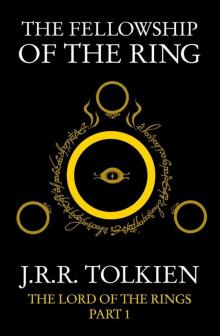 The Fellowship of the Ring
The Fellowship of the Ring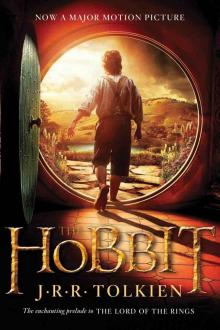 The Hobbit
The Hobbit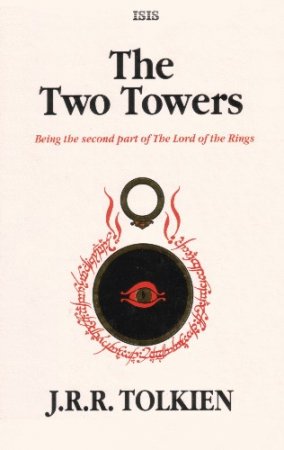 The Two Towers
The Two Towers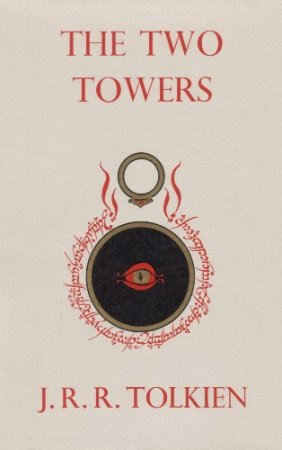 The Return of the King
The Return of the King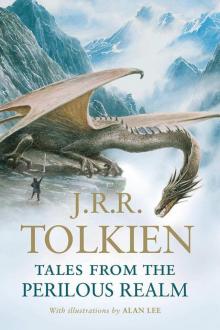 Tales From the Perilous Realm
Tales From the Perilous Realm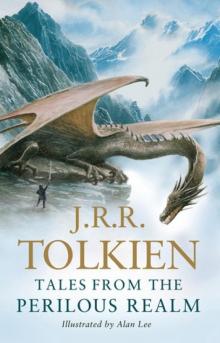 Leaf by Niggle
Leaf by Niggle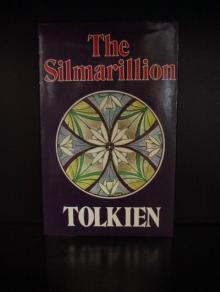 The Silmarillon
The Silmarillon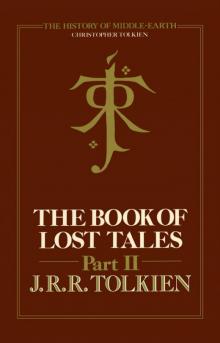 The Book of Lost Tales, Part Two
The Book of Lost Tales, Part Two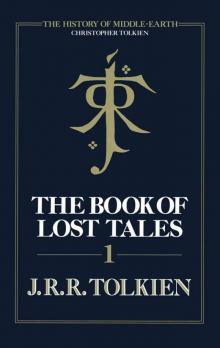 The Book of Lost Tales, Part One
The Book of Lost Tales, Part One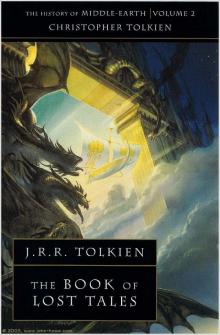 The Book of Lost Tales 2
The Book of Lost Tales 2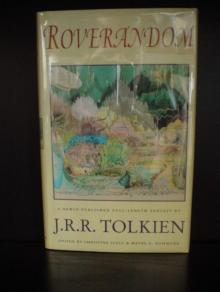 Roverandom
Roverandom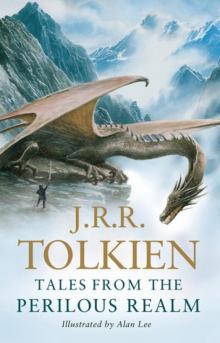 Smith of Wootton Major
Smith of Wootton Major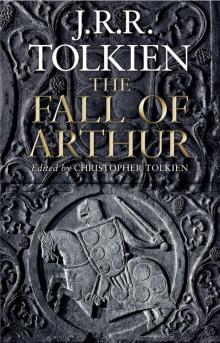 The Fall of Arthur
The Fall of Arthur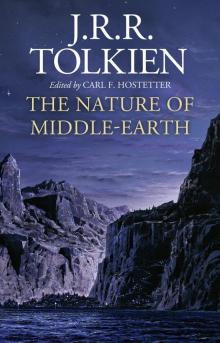 The Nature of Middle-earth
The Nature of Middle-earth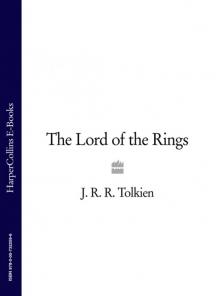 The Lord of the Rings: The Fellowship of the Ring, The Two Towers, The Return of the King
The Lord of the Rings: The Fellowship of the Ring, The Two Towers, The Return of the King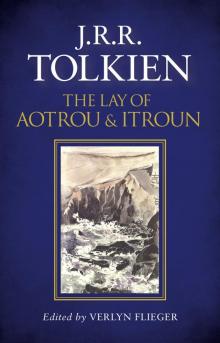 The Lay of Aotrou and Itroun
The Lay of Aotrou and Itroun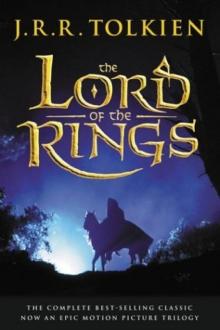 lord_rings.qxd
lord_rings.qxd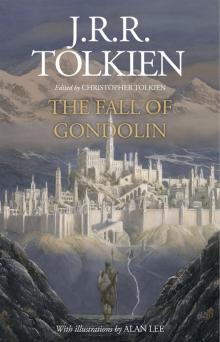 The Fall of Gondolin
The Fall of Gondolin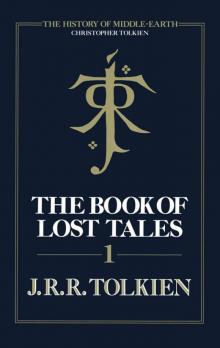 The Book of Lost Tales, Part 1
The Book of Lost Tales, Part 1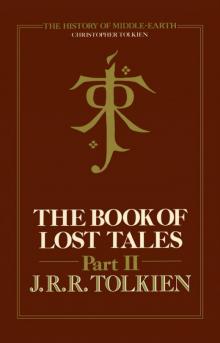 The Book of Lost Tales, Part 2
The Book of Lost Tales, Part 2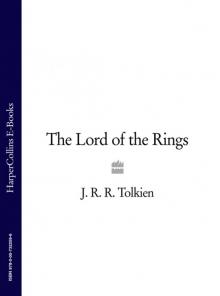 The Lord of the Rings
The Lord of the Rings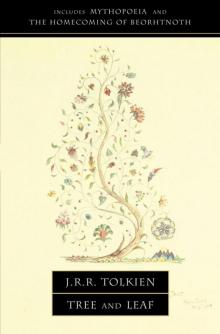 Tree and Leaf
Tree and Leaf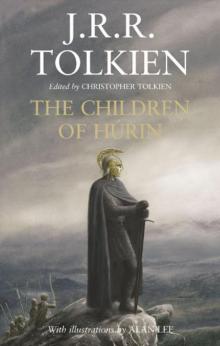 The Children of Húrin
The Children of Húrin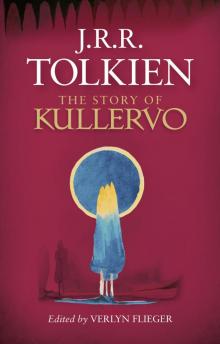 The Story of Kullervo
The Story of Kullervo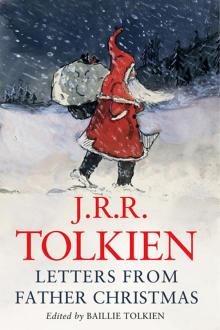 Letters From Father Christmas
Letters From Father Christmas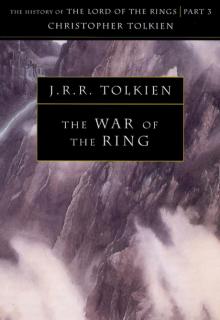 The History of Middle Earth: Volume 8 - The War of the Ring
The History of Middle Earth: Volume 8 - The War of the Ring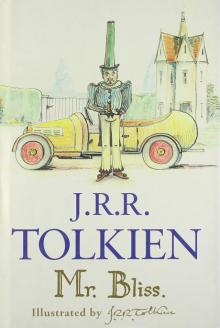 Mr. Bliss
Mr. Bliss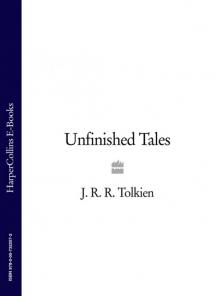 Unfinished Tales
Unfinished Tales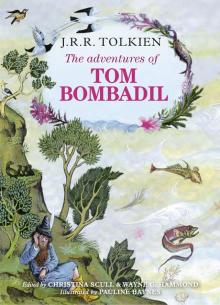 The Adventures of Tom Bombadil
The Adventures of Tom Bombadil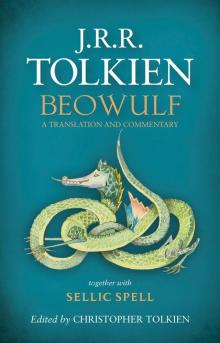 Beowulf: A Translation and Commentary, together with Sellic Spell
Beowulf: A Translation and Commentary, together with Sellic Spell The Silmarillion
The Silmarillion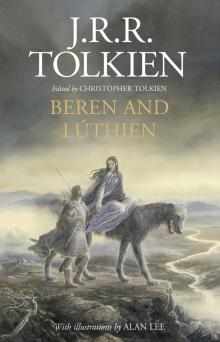 Beren and Lúthien
Beren and Lúthien